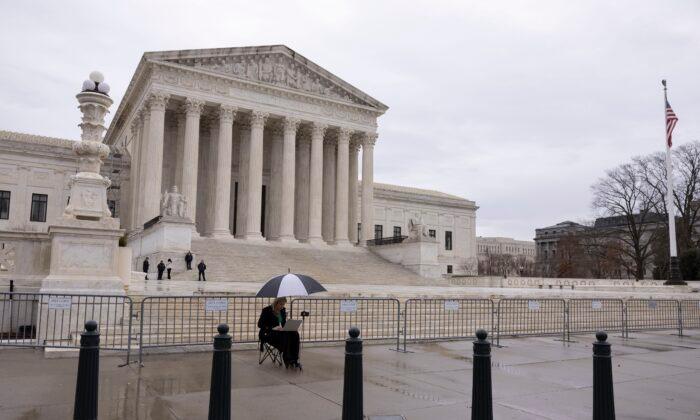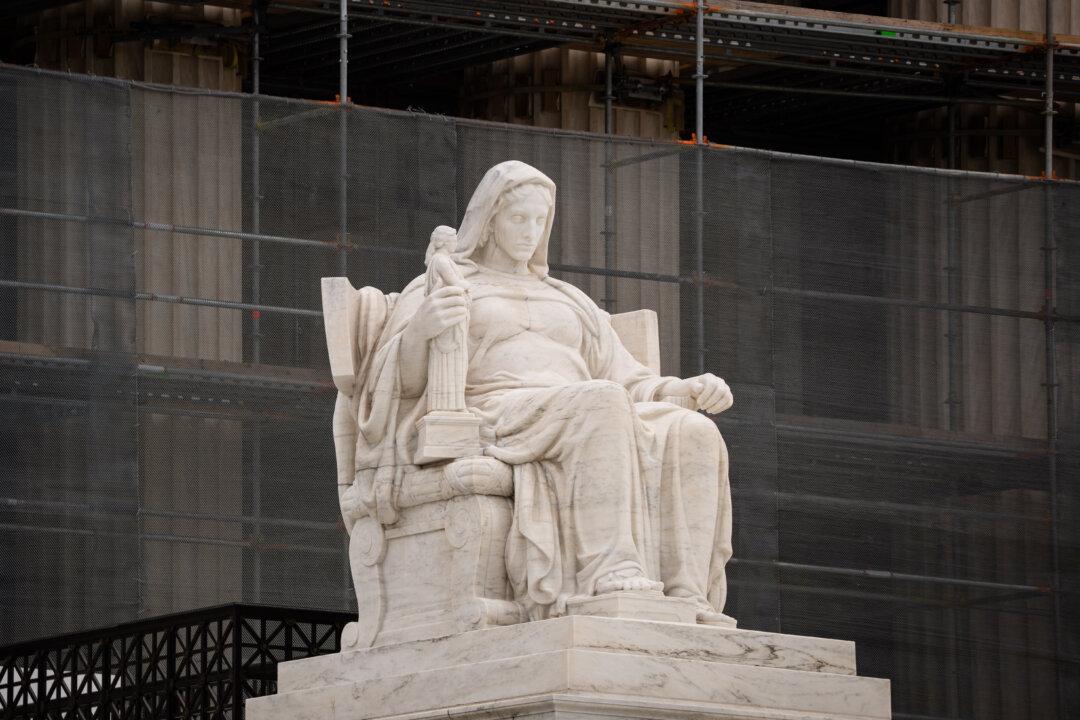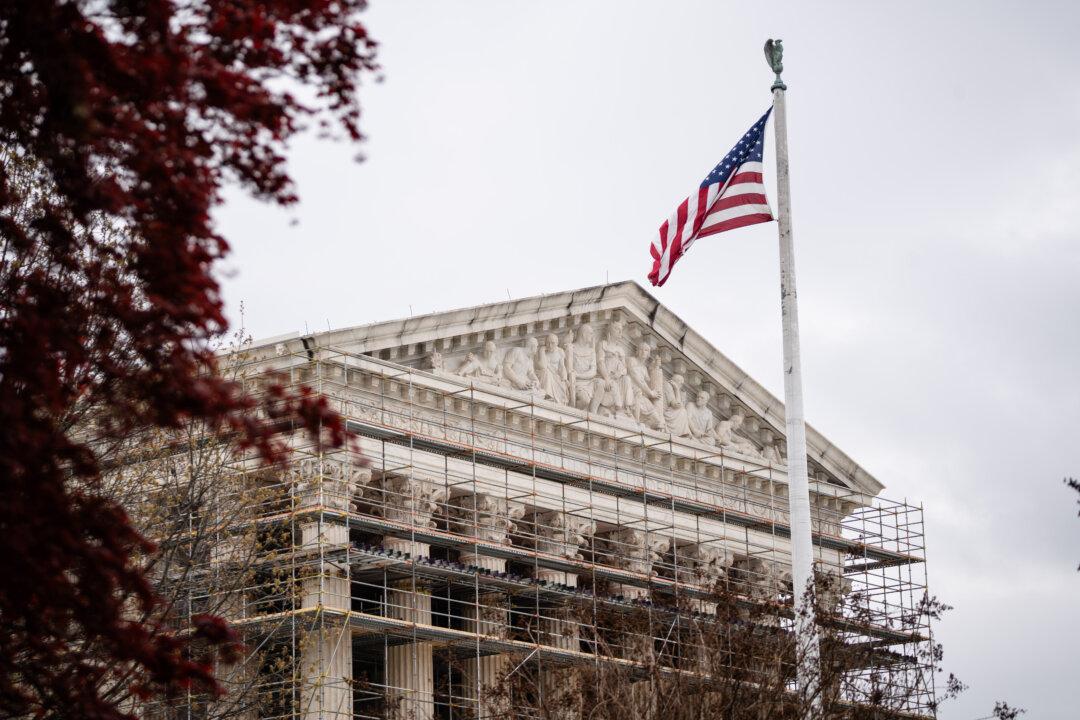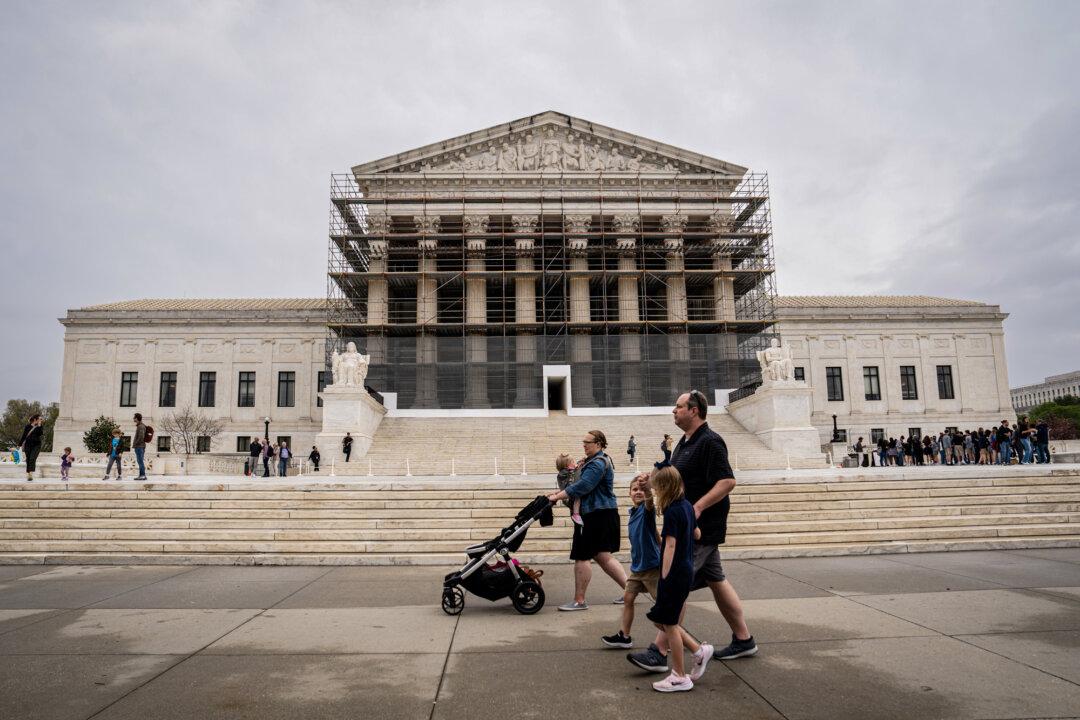The Supreme Court agreed to hear an appeal from a convicted methamphetamine distributor who argues that he was improperly denied relief under the Trump-era First Step Act.
The court granted the petition in an unsigned order on Feb. 27. No justices dissented from the order.
The First Step Act, a bipartisan measure approved by Congress and signed by then-President Donald Trump in 2018, reformed the criminal justice system to an extent and made it easier for the courts to reduce penalties for nonviolent drug offenders.
At the time he signed the First Step Act, Trump said it constituted “an incredible moment” for “criminal justice reform.” He singled out the sentencing reforms included in it, saying “Americans from across the political spectrum can unite around prison reform legislation that will reduce crime while giving our fellow citizens a chance at redemption, so if something happens and they make a mistake, they get a second chance at life.”
Under the First Step Act, defendants convicted of certain drug offenses may obtain “safety valve” relief if they meet specific requirements. This allows the court to impose a sentence below the otherwise applicable statutory minimum. Various courts disagree over how to interpret the language of the statute.
Mark Pulsifer pled guilty in federal district court in Iowa to one count of distributing 50 grams or more of methamphetamine in violation of federal law. Because he was previously convicted of a serious drug felony, the statutory minimum penalty for the new offense was 15 years’ imprisonment.
Pulsifer argued that under the First Step Act he was eligible to be sentenced under federal guidelines but without regard to the statutory minimum of 15 years. Under the act, his case would be evaluated under a criminal history point-based system that assigns points based on, among other things, the severity of prior offenses.
The district court rejected the First Step Act argument but sentenced him under a different authority to 162 months, or 13.5 years, in prison to be followed by 10 years of supervised release.
Pulsifer appealed, arguing the court erred in not applying the guideline range that would have governed if there were no statutory minimum.
Whether the First Step Act provision may be invoked turns on the meaning of “and” in the statute, according to a Courthouse News Service summary:
“Some courts have interpreted the law’s use of ‘and’ [in the relevant passage] to mean offenders have to meet all five sets of criteria, while others have interpreted ‘and’ as ‘or,’ only requiring offenders to meet one of the criteria.”
The U.S. Court of Appeals for the 8th Circuit affirmed the trial court in July 2022.
The Epoch Times reached out to Pulsifer’s attorney, Shay Dvoretzky of Skadden, Arps, Slate, Meagher and Flom, and the U.S. Department of Justice for comment but had not received a reply from either as of press time.
The Supreme Court has not yet scheduled a date for oral arguments in the case, Pulsifer v. United States, court file 22-340, but the date is expected to be in the court’s next term, which begins in October.





